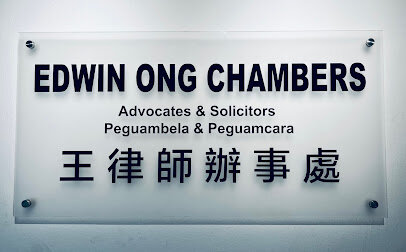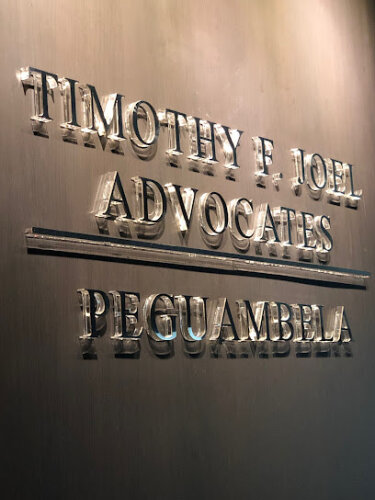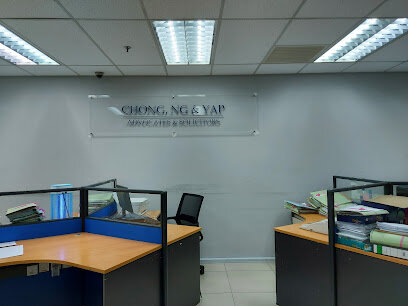Best Commercial Real Estate Lawyers in Malaysia
Share your needs with us, get contacted by law firms.
Free. Takes 2 min.
Free Guide to Hiring a Real Estate Lawyer
Or refine your search by selecting a city:
List of the best lawyers in Malaysia
About Commercial Real Estate Law in Malaysia
Commercial real estate in Malaysia is a dynamic sector that encompasses various types of properties like office spaces, retail outlets, industrial facilities, and more. The legal framework governing commercial real estate involves a complex interplay of property laws, contracts, and government regulations. As Malaysia continues to grow economically, its real estate sector is subject to continuous evolution, making it crucial for property investors and businesses to understand the legal landscape.
Why You May Need a Lawyer
Whether you're buying, leasing, or developing commercial properties, having legal assistance ensures your interests are protected. Situations where you might need a lawyer include:
- Drafting or reviewing commercial lease agreements.
- Conducting due diligence for property transactions.
- Handling disputes arising from tenancy agreements or property usage.
- Navigating the permitting and zoning regulations for new developments.
- Understanding ownership structures and financing arrangements.
- Ensuring compliance with environmental and safety regulations.
Local Laws Overview
Several key laws govern commercial real estate in Malaysia, including the National Land Code 1965, Strata Titles Act 1985, and the Real Property Gains Tax Act 1976. Key aspects include:
- National Land Code 1965: This is the primary legislation concerned with land matters, covering ownership, transfer, and registration of land titles.
- Strata Titles Act 1985: Governs subdivided buildings and land for shared ownership, often relevant in commercial complexes.
- Real Property Gains Tax Act 1976: Imposes a tax on profits from the sale of real estate, relevant for developers and investors.
- Foreign Investment Regulations: Foreign entities and individuals must comply with specific regulations and guidelines when purchasing real estate in Malaysia.
- Environmental Quality Act 1974: Establishes environmental standards that must be met in real estate development.
Frequently Asked Questions
What is the process for purchasing commercial property in Malaysia?
The process typically involves identifying a property, conducting due diligence, negotiating an agreement, finalizing financing, and completing the legal transfer via a sale and purchase agreement.
Can foreigners buy commercial real estate in Malaysia?
Yes, but there are restrictions and minimum purchase prices set by the government depending on the state and type of property.
What taxes apply to commercial real estate transactions?
Key taxes include stamp duty on the transfer of property and Real Property Gains Tax on profits from the sale of real estate.
How are land use and zoning regulations enforced in Malaysia?
Local authorities enforce zoning and land use laws, which dictate the permissible uses of plots in different areas and ensure compliance with city plans.
What is a commercial lease, and how does it differ from a residential lease?
A commercial lease is a legally binding contract specific to business properties, typically more complex than residential leases, covering unique business-related terms.
Are there specific environmental regulations for commercial property developers?
Yes, developers must comply with various environmental laws, including those related to building safety, waste management, and pollution control.
How do I resolve disputes with tenants or landlords?
Disputes can be resolved through negotiation, mediation, or legal proceedings, depending on the nature of the disagreement and contract terms.
What is strata title, and when is it required?
Strata title is required for properties with shared facilities or ownership, like shopping complexes or office towers, where different owners own subdivided portions.
What are the implications of construction delays or defects?
Contracts typically specify remedies for delays or defects, including penalties, repair obligations, and potential termination rights.
What role do real estate agents play in commercial transactions?
Agents facilitate transactions by providing market insights, and property listings, and assisting in negotiations between parties.
Additional Resources
For further guidance, consider exploring the following resources:
- Ministry of Urban Wellbeing, Housing, and Local Government: Provides information on housing policies and regulations.
- Real Estate and Housing Developers Association (REHDA): A representative body for property developers offering industry insights.
- Malaysian Institute of Estate Agents (MIEA): Offers resources and professional guidance for estate agents.
Next Steps
If you require legal assistance, consider the following steps:
- Consult with a legal professional specializing in commercial real estate to understand your rights and obligations.
- Gather and organize all necessary documents related to your property or transaction.
- Prepare a list of questions or concerns to discuss with your lawyer.
- Research and shortlist reputable law firms or legal professionals with expertise in real estate law.
Lawzana helps you find the best lawyers and law firms in Malaysia through a curated and pre-screened list of qualified legal professionals. Our platform offers rankings and detailed profiles of attorneys and law firms, allowing you to compare based on practice areas, including Commercial Real Estate, experience, and client feedback.
Each profile includes a description of the firm's areas of practice, client reviews, team members and partners, year of establishment, spoken languages, office locations, contact information, social media presence, and any published articles or resources. Most firms on our platform speak English and are experienced in both local and international legal matters.
Get a quote from top-rated law firms in Malaysia — quickly, securely, and without unnecessary hassle.
Disclaimer:
The information provided on this page is for general informational purposes only and does not constitute legal advice. While we strive to ensure the accuracy and relevance of the content, legal information may change over time, and interpretations of the law can vary. You should always consult with a qualified legal professional for advice specific to your situation.
We disclaim all liability for actions taken or not taken based on the content of this page. If you believe any information is incorrect or outdated, please contact us, and we will review and update it where appropriate.
Browse commercial real estate law firms by city in Malaysia
Refine your search by selecting a city.
















